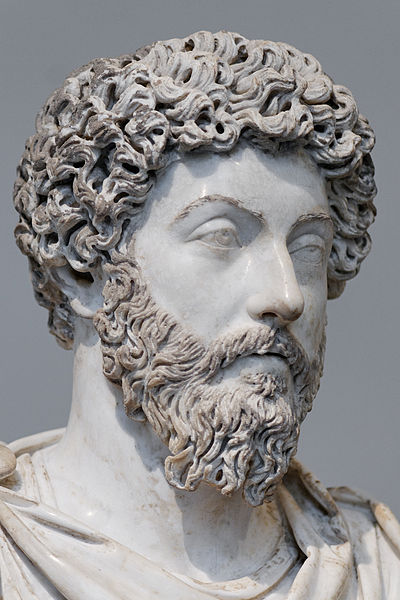Unselfing and the Pursuit of Perfection
Article By Nataliya Petlevych
 The Unique Contribution of Iris Murdoch to Moral Philosophy in the 20th Century
The Unique Contribution of Iris Murdoch to Moral Philosophy in the 20th Century
English philosophy has been generally characterized as empirical and anti-metaphysical. However, the 20th century was marked by a diversity in ideas and approaches, which had the effect of enriching philosophical discourse. A unique place in this development belongs to Iris Murdoch.
She revived the importance of metaphysics and moral philosophy, brought back the notion of inner life as a necessary dimension of a philosopher, and suggested that a moral agent could be understood as an individual who is growing into the Good, albeit recognising all the limitations of human nature.
The prevailing perception of morality that Murdoch challenged emphasized the will as the most important aspect of a moral agent and was based on a materialistic worldview that discarded spiritual reality. In the development of moral philosophy, will according to Murdoch became the last remnant of transcendence penetrating a world of physical cause and effect, a special isolated power difficult to understand and detectable only in its manifestation: when one makes a choice. Stepping away from “neutral logical analysis”, she pointed out that moral life “is something that goes on continually, not something that is switched off in between the occurrence of explicit moral choices”, and it is also something that refers to the whole of our being, not only to a particular volition or reflection. Thus, our moral formation is an ongoing process that shapes our inner fabric and influences every situation of choice.
In her philosophical works and novels, Murdoch painted a picture of the human being in the fullness of his or her experiences, a moral being with inner life reflected in outer actions. Focusing on that inner life, she described the challenges an individual faces in their egoistic tendencies and the fantasies which trap one’s mind and preclude seeing the reality of the other. However, challenges are not the only characteristic of our inner processes. What truly moves us is the idea of perfection. And in the process of moving towards it, we discover it, growing deeper into the concept of value. Murdoch notes that this movement is not neurotic, as a psychologist might object. “The idea of perfection moves, and possibly changes, us (as artist, worker, agent) because it inspires love, in the part of us that is most worthy.”
For Murdoch, the idea of perfection is intimately connected with the concept of the Good in the Platonic tradition. On the one hand, it is indefinable, on another, it is what is known when we have moral knowledge, and what is sought and loved. It is analogous to a light that illuminates our perception and enables us to recognize goodness in particular things. To comprehend this concept, we need to recognize and appreciate the goodness in specific things, including people, art, nature, and ideas. By doing so, we can gradually progress towards a deeper understanding of the Good itself, in a process that Murdoch frequently describes as an “ascending” – a metaphor borrowed from Plato.
The pursuit of perfection and the attainment of the Good involves a process of “unselfing,” or transcending one’s own egocentric perspective to recognize and see the others and the world justly and lovingly. “..the central concept of morality is ‘the individual’ thought of as knowable by love, thought of in the light of the command, ‘Be ye therefore perfect’.”
Murdoch believed that we need to reinstate the importance of love in morality. Drawing inspiration from Simone Weil, she emphasizes the crucial role of “attention”, which refers to a loving and just perception of reality. Implicit in this notion is the idea that we cannot act well unless we have a clear understanding of the situation and are not influenced by our own ego. Hence, the need for unselfing which requires a sustained effort and attention “to see justly, to overcome prejudice, to avoid temptations, to control and curb imagination [fantasy], to direct reflection”. Our moral sensibilities are shaped by what we focus our attention on. Recognizing the Good as a transcendent and guiding principle, we can reorient our attention, which releases new energies within ourselves. Through inner work, we can cultivate a moral sensitivity that allows us to act with clarity, love, and virtue and thus participate in reality in a more fulfilled way.
Iris Murdoch developed a distinctive and compelling vision of what it means to live a good life, and how we can navigate the complex moral terrain of the world around us. Ultimately, for Murdoch, moral philosophy is not an intellectual pursuit, but a practical and existential challenge that demands our attention and engagement.
Image Credits: By Getty Images
The entity posting this article assumes the responsibility that images used in this article have the requisite permissionsImage References
By Getty Images
Permissions required for the publishing of this article have been obtained
Article References
1.Iris Murdoch, The Sovereignty of Good, New York: Routledge, 1970. 2.Iris Murdoch, Metaphysics as a Guide to Morals, New York: Penguin, 1993. 3.Iris Murdoch. Stanford Encyclopedia of Philosophy, plato.stanford.edu/entries/murdoch/#Bib 4.Donna J. Lazenby, A Mystical Philosophy: Transcendence and Immanence in the Works of Virginia Woolf and Iris Murdoch, London, Bloomsbury, 2014.




What do you think?